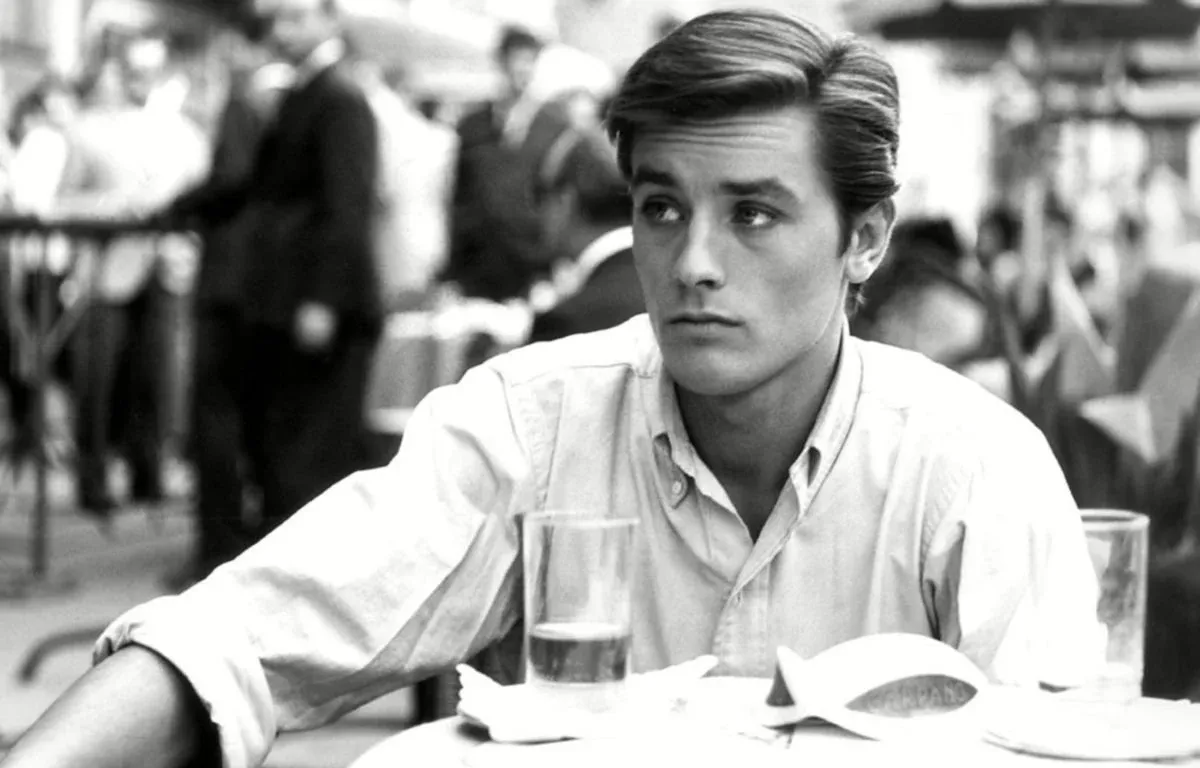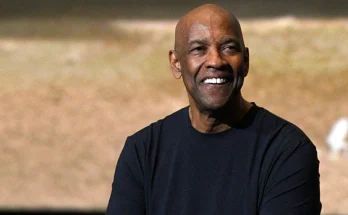
Alain Delon, an iconic figure in French cinema, passed away at the age of 88. His death marks the end of an era for European film, where Delon was celebrated as a symbol of elegance, charisma, and intense screen presence. His career, which spanned over six decades, left an indelible mark on cinema, with roles in films such as “Le Samouraï,” “Rocco and His Brothers,” and “The Leopard.”
Delon was born in Sceaux, a suburb of Paris, in 1935. His early life was marked by turbulence; his parents divorced when he was just four years old. This led to a tumultuous childhood, with Delon moving between different foster homes and schools.
His rebellious nature led him to join the French Navy at 17, but his military career was short-lived due to his disobedience. After leaving the navy, Delon returned to Paris, where he worked various jobs, including as a butcher’s apprentice, before eventually being discovered by a talent scout at the Cannes Film Festival in the 1950s.

Delon’s breakthrough came in 1960 with the release of “Purple Noon,” where he played the role of Tom Ripley, a charming yet psychopathic character. This role showcased his acting prowess and marked the beginning of his ascent in the film industry.
His portrayal of cold, enigmatic characters became his trademark, further solidified by his role in “Le Samouraï” (1967), where he played a lone assassin with a strict code of honor. Delon’s stoic performance, coupled with his striking good looks, made him a global star and a sex symbol of the 1960s and 70s.
Throughout his career, Delon worked with some of the most renowned directors in cinema, including Luchino Visconti, Jean-Pierre Melville, and Michelangelo Antonioni.
His collaboration with Visconti was particularly notable, with films like “Rocco and His Brothers” (1960) and “The Leopard” (1963) becoming classics of European cinema. Delon’s ability to portray complex, morally ambiguous characters earned him critical acclaim and a devoted fan base.
Despite his success on screen, Delon’s personal life was often tumultuous. He was known for his relationships with some of the most beautiful women of his time, including Romy Schneider, with whom he had a highly publicized romance.
The two met on the set of “Christine” (1958) and were engaged for several years before their relationship ended. Delon’s love life continued to be a subject of media fascination, with his marriages and affairs frequently making headlines.
In addition to his acting career, Delon also ventured into film production and business. He founded his own production company in the 1970s, producing several of his films, and later became involved in various business ventures, including a line of luxury goods bearing his name.
However, Delon’s later years were marked by controversy, including allegations of ties to far-right political groups and legal issues involving his former bodyguard.
Despite these controversies, Delon’s contribution to cinema remains undeniable. His performances have left a lasting legacy, influencing generations of actors and filmmakers. Delon received numerous awards throughout his career, including a César Award for Best Actor in 1985 for his role in “Our Story” and an Honorary Golden Bear at the Berlin Film Festival in 1995 for his lifetime achievements.

In 2019, Delon received an honorary Palme d’Or at the Cannes Film Festival, despite facing criticism due to his controversial statements and political affiliations. In his acceptance speech, Delon acknowledged that his life had been full of mistakes but expressed gratitude for the recognition of his work. This award was seen as a fitting tribute to a man who, despite his flaws, had made an indelible mark on the history of cinema.
Alain Delon’s passing is a significant loss to the world of film. His legacy will continue to live on through his films, which remain a testament to his talent and enduring appeal. As fans and colleagues mourn his death, they also celebrate the life of a man who, through his performances, gave audiences a glimpse into the complexity of the human soul.
Delon’s career was not without its controversies, but his contribution to the arts is undeniable, making him one of the most memorable figures in the history of cinema.


